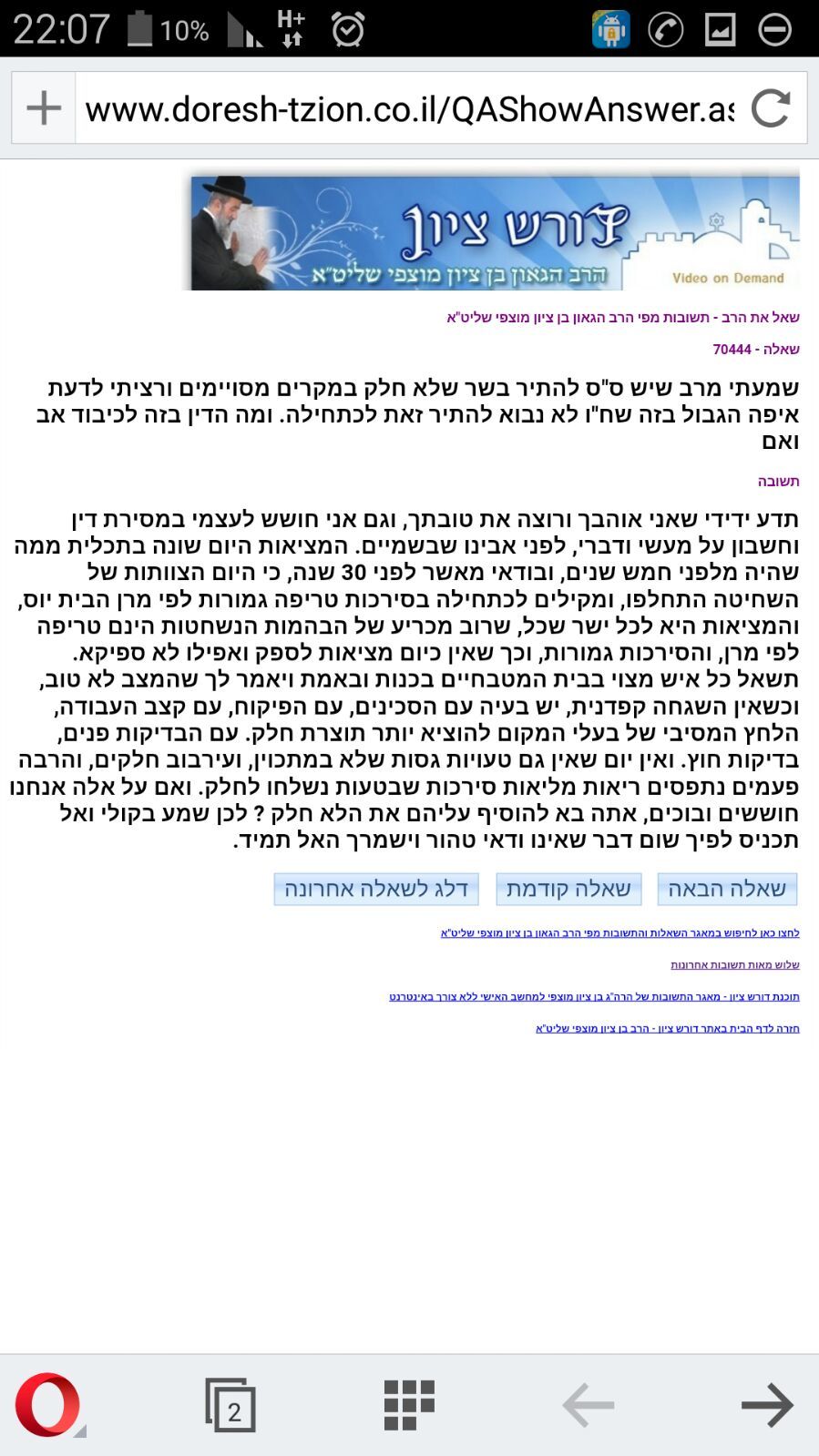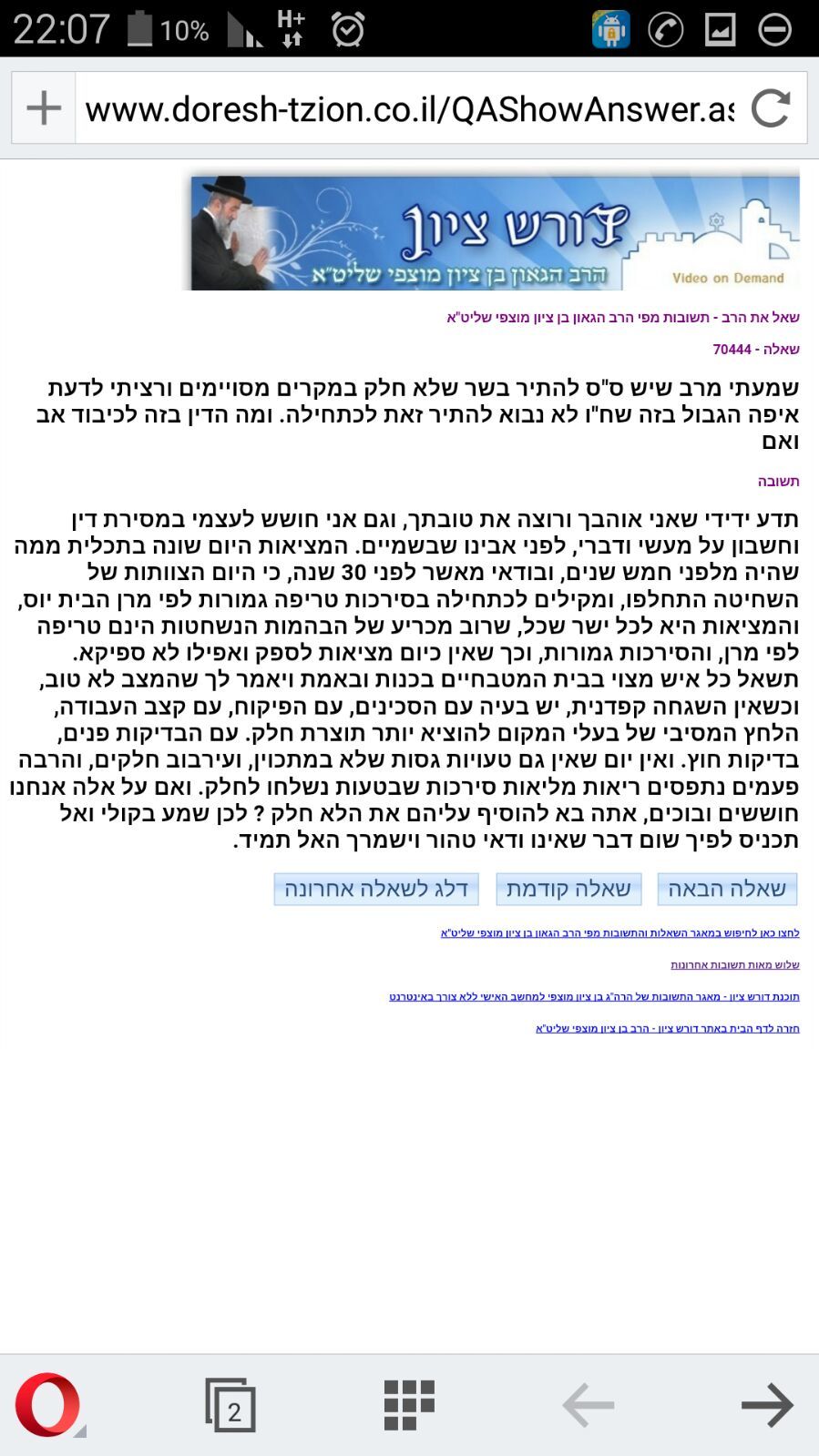 |  |
 |  |
 |
איתא ברמ”א (הלכות מגילה ופורים סימן תרצ סעיף יז): “נהגו התינוקות לצור צורת המן על עצים ואבנים, או לכתוב שם המן עליהן, ולהכותן זה על זה כדי שימחה שמו, על דרך (דברים כה, יט) ‘מחה תמחה את זכר עמלק’, ו’שם רשעים ירקב’ (משלי י, ז). ומזה נשתרבב המנהג שמכים המן כשקורים המגילה בבהכ”נ (אבודרהם); ואין לבטל שום מנהג או ללעוג עליו, כי לא לחנם הוקבעו (ב”י בשם ארחות חיים).
וז”ל הבית יוסף (שם ס”ק יז): “כתוב בארחות חיים (שם אות מא) כשמזכיר הקורא שם המן ובניו מנקשין התינוקות באבנים או בלוחות עץ שבידם, וכתוב בהם שם המן ובניו, ועל ידי הניקוש הם נמחקים. ולמנהג הזה יש שורש בהגדה, דאמרינן (שמות יז יד) ‘כי מחה אמחה את זכר עמלק’, אפילו מעל העצים ומעל האבנים. לכן אין להלעיג על המנהגים כי לא לחנם נקבעו, והמנהג הזה נוהגים בצרפת ובפרובינציא, ונותנים טעם ע”ש (משלי י ז) ‘ושם רשעים ירקב’, עכ”ל”.
ויש לעיין, הרי הרבה פעמים הוזכרו מנהגים ברמ”א, ולמה דוקא בהכאת המן הזהיר הרמ”א באופן מיוחד שלא לבטל שום מנהג. וכן צריך ביאור מה הענין המיוחד שיש בהכאת המן.
ונראה לומר שבאמת היה מקום גדול לבטל מנהג זה, משום שיכול להפריע לציבור לשמוע את המגילה כהוגן. וכבר הזהיר המשנה ברורה על זה שצריך לשמוע היטב, ואם כשמכין המן אינו שומע איזה מילה, צריך לומר הפסוק בעצמו עד שמגיע למקום ששליח ציבור אוחז בו, והדברים לא כ”כ קלים והיה מקום גדול לבטל המנהג.
ולכן הזהיר הרמ”א כאן באופן מיוחד שלא לבטל את המנהג.
ובאמת צריך להבין מה כ”כ החשיבות במנהג זה.
ונראה לומר שיש כאן יסוד גדול להשריש בילדים שמי שהוא צורר ישראל צריך למחות נגדו, ולא להתחבר איתו. ולדעת שבסופו של דבר יהא נעקר מן העולם, הוא וכל מי שמתחבר אתו.
וידוע שבכל דור ודור היו צוררי ישראל שבאים להשמיד את ישראל, כמו שאומרים בהגדה ‘שבכל דור ודור עומדים עלינו לכלותינו’, ולצערינו תמיד היו מלשינים דלטורים ומוסרים שהתחברו עם הרשעים האלה, ומסרו להם ממונם וגופם ביד צוררי ישראל.
וזה היה בתחילת תקנת רבן גמליאל ע”י שמואל הקטן לתיקון ברכת המינים, שהיו תלמידי אותו האיש, שעשו צרות גדולות לעם ישראל. וכן היו תמיד מלשינים בתוך תוכינו שהלשינו על ישראל, והתחברו עם צוררי ישראל.
ואפילו בגזירות הנאצים ימ”ש, היו יהודים ששיתפו איתם פעולה, ואכמ”ל.
וכן עד עצם היום הזה, שהערבים מכריזים חורבן על כל יושבי א”י ומאיימים להשמיד כל יהודי א”י, יש לצערינו יהודים מתוך תוכינו שמלשינים ומוסרים יהודים וממונם לצוררי ישראל.
ועל כן צריך להחדיר חזק בילדים יסוד הענין שגוי שצורר ישראל הוא רשע, ובסופו של דבר יעקר מן העולם. וכן מי שמתחבר איתם ומוסר ממונם או גופן של ישראל ליד הצוררים – דינו כמותם. ואין לו חלק לעולם הבא כמבואר בחז”ל, עי’ רמב”ם (הל’ רמב”ם הלכות עבודה זרה פרק י): “אבל המוסרים והאפיקורסין מישראל היה דין לאבדן ביד ולהורידן עד באר שחת, מפני שהיו מצירים לישראל ומסירין את העם מאחרי ה'”. ועוד כתב הרמב”ם (הלכות תשובה פרק ג הלכה יב): “שנים הם המוסרין: המוסר חבירו ביד עכו”ם להורגו או להכותו, והמוסר ממון חבירו ביד עכו”ם או ביד אנס שהוא כעכו”ם ושניהם אין להם חלק לעוה”ב”.
וידוע שמה שנותן חיזוק הכי גדול לילדים בענין הזה הוא הכאת המן, והרבה ילדים באים לשמוע מגילה בעיקר בעקבות הכאת המן, וזה נותן רושם לכל החיים, ויותר רושם מעצם קריאת המגילה. וגם דרך הכאת המן באים לשמוע גם את המגילה.
וכל זה הוא אחד מיסודות הדת להבדיל ישראל מן העמים, ולהכריז שמי שצורר ישראל הוא צורר כלפי הקב”ה, כי הקב”ה בחר בנו מכל העמים.
ועל כן הזהיר כאן הרמ”א באופן מיוחד שלא לבטל את המנהג הזה, על אף שהיה מקום גדול כן לבטלו, והטעם כי חשיבות המנהג עולה על הסיבות האחרים.
מאתר בריתי יצחק – הרב ברנד שליט”א, כאן.
Why does “the National Interest” demand that Jewish children hitchhiking home remain in jail, while Arabs approaching Jewish towns with hammers and screwdrivers be released?
Thursday night, a friend and I are hitchhiking home from yeshiva for Shabbat. We left late and thus find ourselves stuck at Elad Junction at 3 A.M. (classic teenage planning….) Suddenly, a white vehicle stops next to it. Two men in plainclothes jump out from it and present themselves as police officers. Apparently our long payos, caught their attention… They immediately begin searching our bags. Suddenly one of them victoriously raises an object in the air and shouts, “A cutter and a marker!” Before we even realized why my hobby of carving trees was so important, we found ourselves in handcuffs being led to the Unit for Nationalistic Crimes. One of the officers snidely told us, “They’ll know how to deal with people like you.”
We got to the Unit’s headquarters in Maale Adumim and the officers there were quite pleased to see us. They were happy to deal with “dangerous, Jewish terrorists.” I found myself being interrogated for several hours for “Involvement in a crime with racist motivation.” They accused me of intending to use the cutter to puncture ‘Palestinian’ tires, even as I began explaining my hobby of wood-carving to them. The lack of Arab towns near Elad also seemed to be lost on the interrogators. But no matter, they brought me the next day for a hearing in court.
Just before our hearing, we got to observe the hearing of an Arab youth caught with a firebomb in his hand. The judge ordered the boy released because he was just a youth. It seemed as though I’d have good chances with this judge…
Somehow in my case, the judge’s compassion was not so forthcoming. She explained that she could not release me because there is “a national interest against this youth.” In short, she ordered me kept in jail for four more days and gave the interrogators more time to harass me for hours on end. As part of one interrogation tactic, they even arrested my mother in order to apply pressure on me. This tactic that has been explicitly banned by the courts, but the ‘national interest’ here must have overruled that precedent. After four days, and many conversations on wood-carving, I was ordered released.
Yet the story does not end there. After the prosecution realized they could not connect the two ‘Jewish terrorists’ to any crime, they decided to try another route and filed an indictment for possessing a knife. They then requested remand for the duration of the proceedings relating to this misdemeanor offense. While the judge did not agree to their request, he did place me under house arrest. From what my lawyers have told me, I may be the only person in the history of the State to sit under house arrest for this charge. I guess that shouldn’t be so surprising though, given the ‘national interest….’
Just a pair of kids from Hizme
Let’s move a year forward to recent days of violence and rioting. The Henkin Couple was murdered a few months ago and since then, shootings and stabbings have become commonplace throughout Israel. On Wednesday March 2nd, another regular day, two Arabs penetrated the town of Eli and attacked the father of a family. Later that night, two Arabs penetrated the town of Bracha and stabbed two soldiers. As that attack was going on, two other individuals were seen approaching the town of Yitzhar. The Emergency Response Team was called and forces arrived at the scene. Two Arab youths from Hizme were caught in the area with iron bars, hammers, and gloves.
Shabak interrogators arrived and questioned the two ‘innocent’ Arab youths. The youths claimed they came from the Jerusalem area to look for gold near Yitzhar. The interrogators immediately recognized this as a reasonable claim and decided to release the two youths. They were just looking for gold! After all, Yair Lapid did say that all of the money is buried between Itamar and Yitzhar! It makes perfect sense!
The mother of these two youths was not arrested. They were not even brought for a court hearing. The gold-seeking Arabs were sent home without any restrictions. After all, I guess there simple was no ‘national interest’ against them…
From Hakol Hayehudi, here.
March 16, 2016
It’s bad enough depositing your money into a bank account and earning essentially zero interest on it, or in some countries, having a negative interest rate.
It’s even worse knowing that once you deposit your money in a bank, it’s not really yours anymore. You have turned over your property to the bank in return for a debt claim. You become an unsecured creditor holding an IOU.
Worst of all, there’s the “bail-in,” which we all became familiar with during the 2013 banking collapse in Cyprus. Some uninsured depositors got half of their money back, although, at one bank, customers received nothing of their deposits over the “insured” amount.
In 2014, the leaders of the Group of Twenty (G20) – representing the world’s 20 largest economies – declared the Cyprus model should apply globally. They did so in a mind-numbing tome entitled Adequacy of Loss-Absorbing Capacity of Global Systemically Important Banks in Resolution.
Deposits in banks that are “too big to fail” will be promptly recapitalized with their unsecured debt. And… guess what? The largest chunk of unsecured debt is your bank deposits. Insolvent banks will recapitalize themselves by converting your deposits into worthless bank stock. This avoids taxpayer-funded bailouts that proved politically unpopular during the last financial crisis.
Oh, and get this… the G20 has also declared that derivatives – the toxic contracts Warren Buffett calls “financial weapons of mass destruction” – are secured debts. Since your bank deposits are only unsecured debt, guess who gets your money if the bet goes the wrong way for the bank? Answer: It’s not you.
Heads, the bank wins. Tails, you lose.
It’s practically guaranteed, too, that in the next financial crisis, there’ll be a whole slew of bank failures. That’s despite the fact that the mainstream financial media assures us that central banks have imposed higher capital requirements, stress tests, etc., on banks to ensure that when the “big one” hits, your deposits will be safe.
Don’t believe a word of it. The amount of capital that banks hold compared to the money on deposit is frighteningly low. In the US, the five largest banks have a capital ratio as a percentage of assets of only 6% – although that’s double what it was in 2008. In effect, if every depositor in a bank demands their money back simultaneously – the classic “bank run” – the largest US banks could repay only six cents on the dollar before they ran out of money. And since most banks don’t keep a lot of cash on hand, it could even be less.
It’s worth remembering that historically, US banks were much better capitalized. For instance, in 1842, US banks had an average capital ratio of 60% – ten times that of the largest banks today. That was an era in which bank competition was based on safety because no deposit insurance was in effect.
This chart from Bloomberg News says it all:

Sure, in many countries your bank deposits are “insured.” In the US, the first $250,000 in your account qualifies for deposit insurance through the Federal Deposit Insurance Corporation (FDIC). But for every $100 on deposit, the FDIC has only $1.06 with which to back it. Doesn’t that make you feel warm and fuzzy about the safety of your bank deposits?
Rav Shalom Arush says that until a person realizes that his job in the world is not to make money, he won’t be free of the lust for money. That way, his money will always be tainted… Enjoy this week’s emuna lesson and have a wonderful new week!